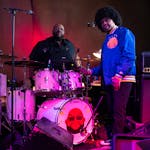Here we go again. Bob Dylan is being accused by a Washington, D.C., journalist of plagiarizing portions of his Nobel Prize for literature lecture from SparkNotes, a study guide like Cliffs Notes.
Dylan, who has been accused over the years of lifting passages from various poets and novelists for his song lyrics, was required by the Swedish Academy to give a lecture in order to receive his prize and the $920,000 that goes with it.
Opting not to attend the Nobel ceremonies in December, Dylan submitted the recorded lecture on June 4. In his speech, the Minnesota-born bard says Herman Melville's classic novel "Moby-Dick" — as well as Erich Maria Remarque's "All Quiet on the Western Front" and Homer's "The Odyssey" — had a big influence on him. However, when he references "Moby-Dick," the passages apparently were taken from the SparkNotes summary of the book, not the novel itself, journalist Andrea Pitzer asserts in a story published Tuesday in Slate.
She offers side-by-side passages of SparkNotes and Dylan's speech to support the theory that he cribbed narrative summaries. However, she does not accuse him of lifting opinions. Pitzer, a Washington, D.C., writer specializing in history, is the author of "One Long Night: A Global History of Concentration Camps" and "The Secret History of Vladimir Nabokov."
Pitzer posits that 20 passages from SparkNotes' "Moby-Dick" notes show up in Dylan's Nobel lecture with similar wording. For example:
"There's a crazy prophet, Gabriel, on one of the vessels," Dylan offered, "and he predicts Ahab's doom."
Pitzer cited the SparkNotes statement — "One of the ships ... carries Gabriel, a crazed prophet who predicts doom" — that does not appear in the novel.
Dylan's been accused before
This seems to be the latest in an ongoing series of kerfuffles over sources of Dylan's work, allegations that date to his first album of original material, 1963's "The Freewheelin' Bob Dylan." Detractors said he rewrote songs by Lead Belly and Henry Thomas, which Dylan said was part of the folk tradition, and that he borrowed the melody for "Blowin' in the Wind" from a 16th century Protestant hymn.
Much ado was made over Dylan's 2006 album "Modern Times," the final in a highly acclaimed trilogy of comeback albums of potent original material. Researchers pointed out that snippets of lyrics could be traced to the works of Ovid, Henry Timrod and other poets.
Dylan himself addressed the indictments in a 2012 Rolling Stone interview with journalist Mikal Gilmore.
"In folk and jazz, quotation is a rich and enriching tradition. That certainly is true. It's true for everybody, but me. There are different rules for me," Dylan said. "And as far as Henry Timrod is concerned, have you even heard of him? … And if you think it's so easy to quote him and it can help your work, do it yourself and see how far you can get." He added: "It's an old thing — it's part of the tradition. It goes way back."
Dylan continued: "I'm working within my art form. I work within the rules and limitations of it. It's called songwriting. It has to do with melody and rhythm, and then after that, anything goes. You make everything yours. We all do it."
The use of phrases from SparkNotes in the Nobel lecture is different from the folk process, said Alex Lubet, a University of Minnesota music professor who has taught classes on Dylan. He'd be concerned if Dylan had turned in a classroom assignment using this approach. But he considers the context.
"His lecture is wild and strange," Lubet said Tuesday. "It's meant to be a post-modern work of art. Any kind of a collage technique is fair game."
Cultural critic David Yaffe, a Syracuse University professor of humanities who teaches a class on singer-songwriters including Dylan, doesn't see this alleged plagiarizing as detracting from the value of the lecture.
"I was very moved by his speech and I'm not any less moved knowing this. I don't find myself feeling like a dupe," he said in an interview on Tuesday. "He's on the road all the time. He just turned 76. You could see him wanting to take a few shortcuts. I don't think it makes him any less Bob Dylan."
Will the Swedish Academy rescind Dylan's Nobel Prize?
"That would be historic," Yaffe said with a chuckle. "I don't think they will."
Twitter: @JonBream • 612-673-1719






